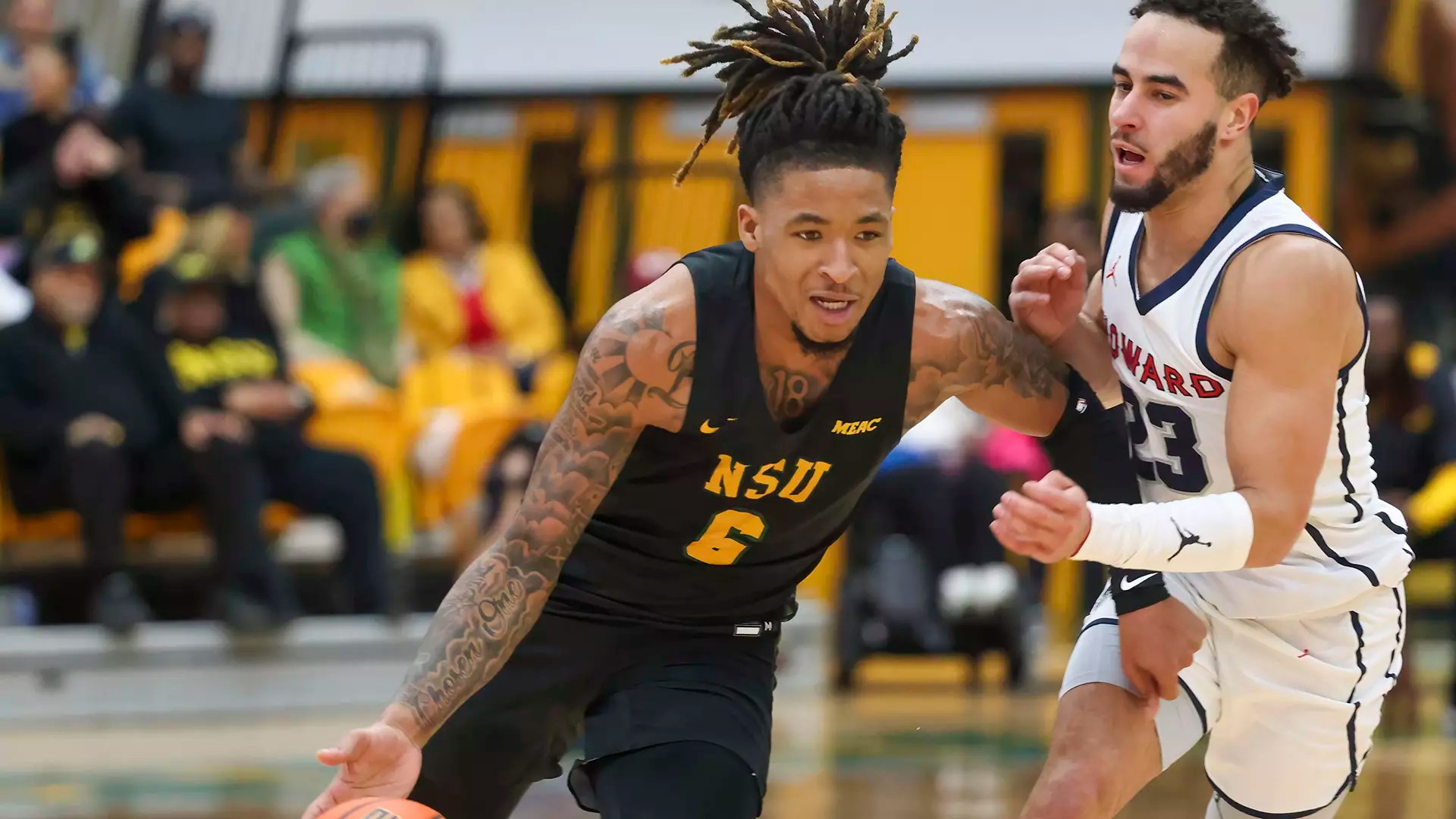The modern NBA gets talent from everywhere. Doncic and Jokic are products of Europe’s best youth programs. Jalen Green and Scoot Henderson are successful grads of the NBA’s G League Ignite. And Lebron James was drafted straight out of high school.
Years ago, HCBU’s (Historically Black Colleges and Universities) were also a significant provider of talent for NBA teams. Now? Not so much.
Last season, only one NBA player suited up for an HBCU squad: Robert Covington. It goes further than that. He’s the only HBCU player since 2013 to play for an NBA team.

Having zero NBA players as HBCU alums is a striking fall compared to just a few decades ago. From the 70s to the 90s, HBCU players became All-Stars and NBA champions on the regular. But the landscape is starting to slowly change once more, with plenty of talent making its way through the various HBCU programs.
Hope for HBCU Players
The latest NBA season is just getting started, but the contours of what we can expect are already starting to show. First, Lebron still has it. The Thunder look downright scary and are a contender. And Wemby is legit (but we already knew that).
But for those who follow HBCU ball, the question remains: will we see another alum on an NBA hardwood anytime soon? Many analysts predict that the tide is starting to change.
HBCU Support from NBA Legends
Ex-NBA players are increasingly looking to exert influence on existing HBCU basketball programs. The Jordan Brand, for example, recently announced a multi-year partnership with Howard. Kenny Anderson had a stint as head coach for Fisk. And, Reggie Theus is both head coach and athletic director at Bethune–Cookman.
These are some legitimate names getting involved with HBCU, something that has been sorely lacking in previous years. It shows the intent to once again put focus on giving both educational and sporting opportunities to historically under-funded programs.
Return of a Physical Style of Play
Every talent pool has a style. European players tend to be good shooters. NBA G League Ignite has provided physical standouts in Jalen Green and Scoot Henderson. And HBCU tended to fill the physical and defensive spots on an NBA roster.
The problem is that in today’s NBA, the focus has tended to be on letting offensive players flourish. However, fans started to complain about the sheer number of foul calls, the ‘soft’ play, and the watering down of the entertainment product.
Towards the end of last season, NBA referees started to allow more physical play. Role players with specific defensive roles are now in high demand, and that’s always been a facet that HBCU players command. Will we see a Charles Oakley 2.0?
There is Talent
Ultimately, you need a pathway and talent to make it in the NBA. Without one or the other, Adam Silver is not going to announce your name on draft night.
There are several HBCU players who have legitimate hope to make it to the league one day, based on what they’re showing on the court.
Jamarii Thomas, playing for Norfolk State, won the Mid-Eastern Athletic Conference Player of the Year. Tahj Harding had 47 points against Augusta University, showing his scoring prowess. And Tai’Reon Joseph is a talented shooter who led the SWAC in scoring.
However, there is much still to be done. None of these players will get drafted in the first round, and many will have to find alternative routes to an NBA roster.
Lessons From the Past
Put together, 351 HBCU players have been drafted by an NBA team. The last one, however, Kyle O’Quinn, was over a decade ago in 2012. He last played for the Sixers in 2020.
Yet what once was, may be yet again. Some of the most memorable players in NBA history are HBCU alums:
Charles Oakley
He’s one of the symbols of an NBA team that fuels today’s 90’s nostalgia: Pat Riley’s New York Knicks. Oak was a monster rebounder, a no-nonsense physical presence, and was even an All-Star in 1994. When you think of the 90’s Knicks, you think Charles Oakley.
Earl Monroe
Earl “The Pearl” Monroe is the best player from Winston-Salem State University to ever play in the NBA. He also happens to be one of the best to ever do it, a Hall of Famer, a Kicks legend, and the 58th greatest player in NBA history according to The Athletic.
Rick Mahorn
You don’t forget playing against Rick Mahorn, just ask Michael Jordan. He was one of the key pieces of the notorious “Bad Boys” Pistons of the 1980s, the team that won back-to-back NBA titles. He was a defensive powerhouse, grabbing All-Defensive Second Team honors in 1990.
To replicate what HBCUs have done in the past will not be easy. There’s a lot of extra competition from abroad, many top prospects don’t pick HBCUs, and the league is not doing enough to help elevate programs.
But, for the first time in a long time, there is hope.



